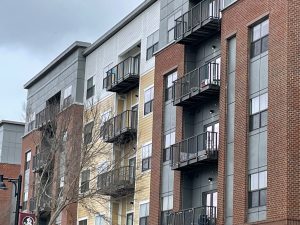Fixing “toothless” regulation
 Legislation is continuing to move forward in the Florida Legislature this session reshaping and enforcing accountability for condominium board members, an issue discussed in our November 20 newsletter last year. According to many involved, the current condo landscape has far too many loopholes for bad actors to escape accountability, with the proposed SB 1178 overhauling current statues to impose criminal penalties for violations and fraud on condominium boards, other community and homeowners associations, and their elections.
Legislation is continuing to move forward in the Florida Legislature this session reshaping and enforcing accountability for condominium board members, an issue discussed in our November 20 newsletter last year. According to many involved, the current condo landscape has far too many loopholes for bad actors to escape accountability, with the proposed SB 1178 overhauling current statues to impose criminal penalties for violations and fraud on condominium boards, other community and homeowners associations, and their elections.
The bill outlines new education requirements for condo managers, requires building records to be available online, and clarifies obligations surrounding hurricane protection. Perhaps most importantly, the bill strikes text from Florida Statutes that has hindered the Department of Business and Professional Regulation (DBPR) from enforcing condo association laws, as we outlined in our November article. Historically, it has been a long and arduous process even for law enforcement to enter this area and make meaningful changes or arrests as there were no specific crimes defined in statutes. “Unit owners basically have no rights, (and if board members are) stealing money, if they’re concealing records (or) doing something nefarious, good luck asking them to step down – their response is going to be, ‘Sue me’”, said state condominium ombudsman Spencer Hennings in a recent panel discussion about condo governance.
But Senator Jennifer Bradley (R-Fleming Island), the bill’s sponsor, is hopeful and calls this “the necessary next step” in a process to better protect both life and property across Florida. She and bill co-sponsor Senator Vicki Lopez (R-Miami) still remember the collapse of Champlain Towers South, a tragedy which claimed the lives of 98 residents in June of 2021 which has drawn much criticism over recent years. Disasters like this highlight the shortcomings in current legislation, infrastructure, and governance that continue to spiral without some sort of intervention.
An amended version of the bill was unanimously approved last Tuesday, allocating $7.4 million ($6.1 million in recurring funds) to pay for administration of the bill’s provisions, including 65 new full-time DBPR employees for enforcement. The bill now largely mirrors its House companion, HB 1021, which has passed the House and along with the Senate bill, now awaits a floor vote in the Senate. We appreciate the work done on these bills and their consideration for final passage this week.
LMA Newsletter of 3-4-24

